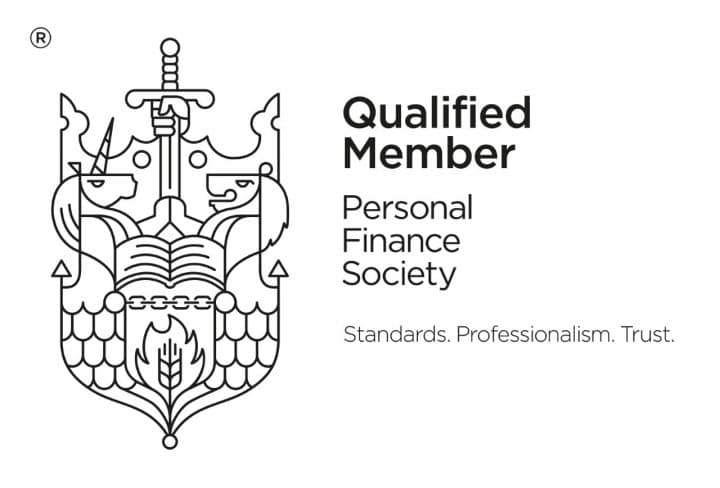Navigating the complex world of personal finance can be challenging, which is why working with a financial adviser is a smart choice. Financial advisers can help you make informed decisions about your financial planning, investments, pensions, and other aspects of your financial life. This article will guide you on how to find a financial adviser, the types of financial advisers available, and how to effectively communicate with them to meet your needs.
Finding a Financial Adviser
To find a financial adviser, start by asking for recommendations from friends, family, or colleagues who have had positive experiences with financial advisers. You can also search online directories, such as the Financial Conduct Authority (FCA) register or the Chartered Financial Planner directory to find an adviser in your area. When looking for financial advisers, consider their qualifications, experience and customer reviews to ensure they have the expertise to provide the advice you need.
Types of Financial Advisers
There are two main types of financial advisers in the UK: independent financial advisers (IFAs) and restricted advisers. The key difference between them lies in the range of products and services they can recommend.
Independent Financial Advisers (IFAs)
IFAs are qualified professionals who offer impartial, unbiased advice on a wide range of financial products and services. They are not tied to any specific product providers, so they can recommend the most suitable products to meet your needs. IFAs are regulated by the Financial Conduct Authority (FCA) and must adhere to strict guidelines to maintain their independent status.
Restricted Advisers
Restricted advisers, on the other hand, can only offer advice on a limited range of products and providers. They may specialise in certain areas, such as pensions or investments, and may be tied to a specific organisation or product provider. While restricted advisers can still provide valuable financial advice, their recommendations may be limited compared to IFAs.
Choosing a Financial Adviser
When choosing a financial adviser, consider the following factors:
-
Qualifications: Look for advisers with recognised qualifications, such as Chartered Financial Planner or Certified Financial Planner. These qualifications indicate a high level of expertise in financial planning.
-
Experience: Seek out advisers with a track record of success and experience in the specific areas of financial planning you require, such as pensions, investments, or mortgages.
-
Impartiality: IFAs offer unbiased, independent advice, while restricted advisers may be tied to specific products or providers. Depending on your needs, you may prefer an IFA for their impartial recommendations.
-
Fees: Understand how much their advice will cost and the payment structure. Some advisers charge a flat fee, while others may charge a percentage of the assets they manage for you.
Preparing to Get Financial Advice
Before meeting with your chosen financial adviser, gather all relevant financial information, such as bank statements, investment portfolios, and pension statements. Be prepared to discuss your financial goals, both short-term and long-term, and your attitude to risk. This information will help your adviser tailor their recommendations to your unique financial circumstances.
Financial Services Offered by All Aspects Financial
At All Aspects Financial, we offer a comprehensive range of financial services, including:
-
Investment advice: We can help you build and manage an investment portfolio that aligns with your financial goals and risk tolerance.
-
Pension advice: Our advisers can help you plan for retirement and navigate the complex world of pensions, ensuring you make informed decisions to secure your financial future.
-
Mortgage advice: We provide guidance on mortgage products and help you find the best mortgage for your specific needs.
-
Tax planning: Our experts can assist you in minimising your tax liabilities and ensuring you take advantage of all available tax breaks.
-
Estate planning: We offer advice on estate planning, including wills, trusts, and inheritance tax, to help you protect your assets and ensure they are distributed according to your wishes.
- Insurance advice: Our advisers can help you find suitable insurance products, such as life insurance, income protection, and critical illness cover, to safeguard your financial security.
Paying for Financial Advice
Understanding the costs associated with financial advice is essential. Advisers may charge fees in various ways, such as a flat fee, hourly rate, or a percentage of the assets they manage for you. When choosing a financial adviser, ask for a clear explanation of their fee structure and compare costs among different advisers to find one that offers value for money.
Things to Do if Things Go Wrong
If you’re unhappy with the advice or service provided by your financial adviser, take the following steps:
-
Communicate your concerns: Discuss your issues with your adviser to give them an opportunity to address the problem.
-
Make a formal complaint: If you’re still dissatisfied, follow the adviser’s complaints procedure and submit a formal complaint.
-
Contact the Financial Ombudsman Service: If you’re unable to resolve the issue with your adviser, you can escalate your complaint to the Financial Ombudsman Service, an independent body that resolves disputes between consumers and financial service providers.
-
Seek compensation: If you have suffered financial loss due to bad advice, you may be entitled to compensation through the Financial Services Compensation Scheme (FSCS), which covers claims against regulated firms that are unable to pay.
Conclusion
Working with a financial adviser can help you make informed decisions about your personal finance and achieve your financial goals. By understanding the differences between independent and restricted advisers, evaluating their qualifications and experience, and preparing for your meetings, you can build a strong relationship with your adviser and ensure they provide the tailored advice you need. Remember to monitor your financial progress regularly and maintain open communication with your adviser to stay on track toward your financial objectives.






